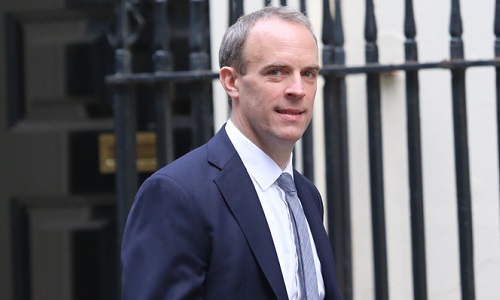Sign up for our free daily newsletter
YOUR PRIVACY - PLEASE READ CAREFULLY DATA PROTECTION STATEMENT
Below we explain how we will communicate with you. We set out how we use your data in our Privacy Policy.
Global City Media, and its associated brands will use the lawful basis of legitimate interests to use
the
contact details you have supplied to contact you regarding our publications, events, training,
reader
research, and other relevant information. We will always give you the option to opt out of our
marketing.
By clicking submit, you confirm that you understand and accept the Terms & Conditions and Privacy Policy
For decades, the law of defamation in England and Wales has been in a constant state of evolution, seeking to strike a balance between the right of freedom of expression on the one hand with the right to reputation on the other.
Over the course of the past year, critics - tending to be members of the press and/or a few politicians - have labelled, what on any reasonable view are a very small number of cases brought against publishers or journalists in England as being Slapps (strategic lawsuits against public participation).
Although Slapps, whether actual or alleged, have been part of the US legal landscape for some time, this year has marked the first time that the term has found any widespread usage in this jurisdiction. There have even been recent reports that the government has missed an opportunity to stop Slapps by making an amendment to the economic crime bill.
Freedom of speech is of vital importance in any democratic society. However, the question that ought to be asked is whether in reality so-called Slapps constitute a genuine problem in this jurisdiction, and if so what might reasonably be done about them.
The UK Justice Secretary, Dominic Raab, has described Slapps in this manner: “[Slapps are] an abuse of the legal process, where the primary objective is to harass, intimidate and financially and psychologically exhaust one’s opponent via improper means."
Plainly, any such cases, to the extent that they exist here, should be disposed of as quickly and economically as possible.
There is already an array of powers in place to deal with claims that lack merit
That said, it is quite right that the UK government adopts appropriate caution before bringing into force any substantive changes to either the law or procedural rules in this area. In our experience, lawyers do not generally bring claims of the nature described by Raab.
Nor is it our experience that the legal system is being ‘abused’. There is already an array of powers in place to deal with claims that lack merit (including, importantly, in relation to costs awards). Against this backdrop, there is a real and substantial risk that any change in the law will only lead to expensive satellite litigation, thereby actually increasing the costs for all parties.
This is one of the reasons why, without a very limited and watertight definition of what a SLAPP is, and therefore what it is not, there could easily be an unjustified restriction of the rights of individuals and corporates to seek legitimate protection of their reputations from unlawful harm. Such an outcome in itself would certainly not be in the public interest.
Balancing these competing rights is by no means easy. Much has been said about wealthy claimants and a so-described power imbalance. However, there will always be certain cases where there is a disparity in the resources that can be deployed by one or other of the parties to the litigation.
Sometimes, this will favour the claimant, and at others it will favour the defendant, particularly if the defendant is a large media organisation. According to Ministry of Justice data, the majority of defamation cases are brought by ‘ordinary’ individuals who do not have especially high means. It would therefore be wrong for anyone to assume that, in this jurisdiction at least, this is a one-way street where publishers are constantly out-resourced by claimants.
A change could easily create more problems than it might resolve
It seems therefore inevitable that creating a new jurisdiction that addresses Slapps will lead to satellite litigation and the risk that complex hearings are required at an early stage, making costs even higher. A change could easily create more problems than it might resolve. Rather than attempting to bring into force changes that will likely be counter-productive, a better approach is for the courts to use existing powers to deal or dispose of any such cases.
Fundamentally, the law as it stands is intended to provide a remedy to people and corporates where they believe that their reputations have been caused serious harm as a result of a third party publishing false information about them, or that their private information has been misused where there is no legitimate public interest justification for doing so.
Various defences are already potentially available to defendants which are designed to protect those who are responsibly reporting on a matter of public interest, or voicing an opinion based on the existing facts. Given this, it seems to me that there is a serious risk of creating greater uncertainty and unfairness, and therefore, that maintaining the carefully balanced status quo is the best option.
Jon Oakley is a partner at London-based media entertainment and commercial law firm Simkins
Email your news and story ideas to: [email protected]






